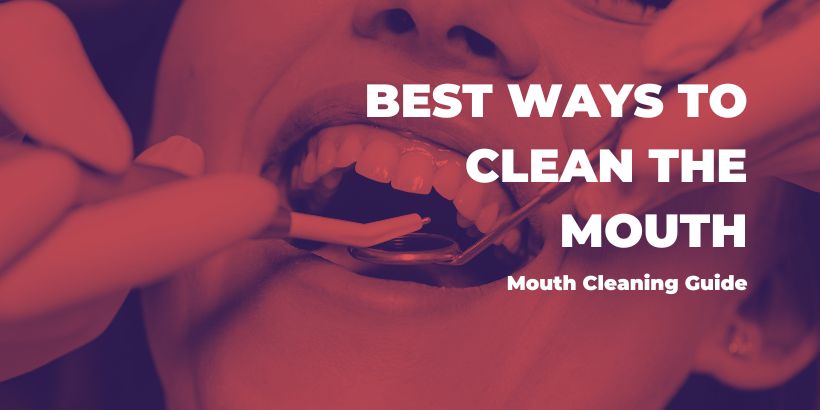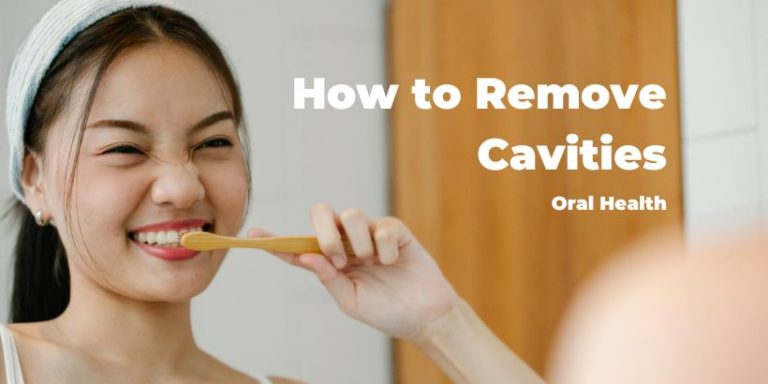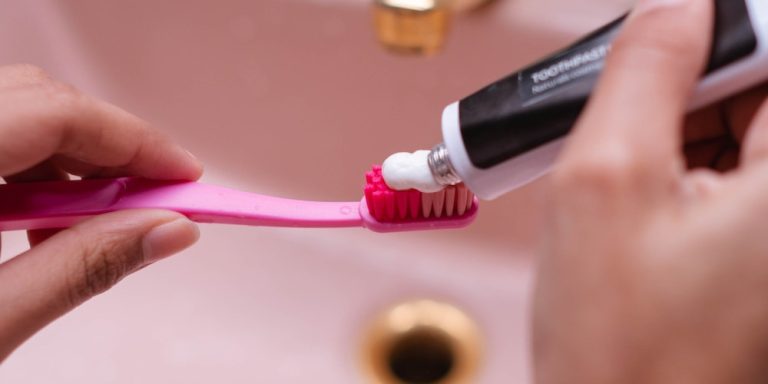We’re an Affiliate
We hope you love the products/services we recommend. As an affiliate, we earn from qualifying purchases. Thank you for using our links. We appreciate you!
Are you looking for the best ways to clean the mouth? Well, you’re at the right place. Because in this blog post you’ll learn the best ways to clean the mouth.
Maintaining good oral hygiene is crucial for overall health and well-being. Proper oral care helps prevent tooth decay and gum disease, both of which can have serious consequences for your health.
While brushing and flossing your teeth are important steps in maintaining good oral hygiene, it’s also important to regularly clean the entire mouth to remove bacteria and keep it fresh. In this blog post, we will explore the best ways to clean the mouth and provide tips for maintaining healthy teeth and gums.
The Best Ways to Clean the Mouth
By following these simple steps, you can help to keep your mouth clean and healthy and reduce your risk of oral health problems. In this blog, we will go into more detail about each of these steps and provide tips for maintaining good oral hygiene.
Here are some of the best ways to clean the mouth in order to keep it healthy.
Brush your teeth regularly
Brush your teeth twice a day with fluoride toothpaste. Use a toothbrush with soft bristles and replace it every three to four months.
Brushing your teeth twice a day with fluoride toothpaste is an important part of maintaining good oral hygiene. Fluoride is a mineral that helps to strengthen tooth enamel, making it more resistant to decay. Here are some tips for proper tooth brushing:
- Use a soft-bristled toothbrush. Hard bristles can damage tooth enamel and irritate your gums.
- Hold the toothbrush at a 45-degree angle to your gums.
- Use a gentle circular motion to brush all surfaces of your teeth, including the fronts, backs, and tops.
- Don’t forget to brush your tongue to remove bacteria and freshen your breath.
- Spit out the toothpaste after brushing, but don’t rinse your mouth with water. This will help to keep fluoride on your teeth for longer.
- Replace your toothbrush every three to four months, or sooner if the bristles become frayed.
By brushing your teeth twice a day and using fluoride toothpaste, you can help to prevent tooth decay and keep your mouth clean and healthy.
Floss daily
Floss daily is one of the best ways to clean the mouth. This is to remove plaque and food particles from between your teeth and along the gum line.
Flossing is an important part of maintaining good oral hygiene because it removes plaque and food particles from between your teeth and along the gum line, which a toothbrush cannot reach. Here are some tips for proper flossing:
- Use about 18 inches of floss, winding it around your middle fingers and leaving a few inches to work with.
- Hold the floss tightly between your thumb and forefinger and gently guide it between your teeth.
- Use a gentle sawing motion to move the floss back and forth against the sides of your teeth.
- Don’t forget to floss behind your back teeth.
- Rinse your mouth with water or mouthwash after flossing to remove any remaining food particles or plaque.
By flossing daily, you can help to prevent tooth decay and gum disease and keep your mouth clean and healthy. It’s important to be gentle when flossing, as flossing too hard can damage your gums.
If you have difficulty flossing, there are other options available, such as interdental brushes or water flossers. Your dentist or hygienist can help you choose the right option for you.
Rinse the mouth after meals
Rinse your mouth with water or mouthwash after eating or drinking, especially sugary or acidic foods and drinks which is one of the best ways to clean the mouth.
Rinsing your mouth with water or mouthwash after eating or drinking, especially sugary or acidic foods and drinks, can help to remove food particles and bacteria from your mouth and freshen your breath. Here are some tips for using mouthwash:
- Follow the instructions on the mouthwash label for the correct amount to use.
- Swish the mouthwash around in your mouth for the recommended amount of time, usually 30 seconds to one minute.
- Spit the mouthwash out and don’t swallow it.
- Rinse your mouth with water after using mouthwash to remove any residue.
By using mouthwash as part of your oral hygiene routine, you can help to kill bacteria, freshen your breath, and maintain a clean and healthy mouth. It’s important to choose a mouthwash that is appropriate for your needs. For example, if you have dry mouth, you may want to choose a mouthwash that contains xylitol, which can help to stimulate saliva production.
If you have gum disease, you may want to choose a mouthwash that contains antimicrobial agents to help kill bacteria and reduce inflammation. Your dentist or hygienist can help you choose the right mouthwash for your needs.
Scrap the tongue
Use a tongue scraper or brush your tongue to remove bacteria and freshen your breath.
Using a tongue scraper or brushing your tongue can help to remove bacteria and freshen your breath. Here are some tips for cleaning your tongue:
- Use a tongue scraper or a toothbrush with a tongue-cleaning bristles.
- Place the tongue scraper or toothbrush at the back of your tongue and gently scrape or brush forward towards the front of your tongue.
- Rinse your mouth or brush your teeth after cleaning your tongue.
By cleaning your tongue, you can help to remove bacteria and freshen your breath. It’s important to be gentle when cleaning your tongue, as scraping too hard can irritate your tongue and cause redness or soreness.
If you have a sensitive tongue, you may want to choose a tongue scraper with a rounded edge or a toothbrush with soft bristles. You can also try using mouthwash or tongue-cleansing toothpaste to help freshen your breath. If you have any concerns about cleaning your tongue, you can talk to your dentist or hygienist for more information.
Drink plenty water
Drink plenty of water to help rinse away bacteria and food particles from your mouth.
Drinking plenty of water can help to rinse away bacteria and food particles from your mouth, keeping it clean and healthy. Here are some tips for increasing your water intake:
- Keep a bottle of water with you and take small sips throughout the day.
- Drink a glass of water before and after meals.
- Choose water instead of sugary drinks, such as soda or fruit juice.
- If you don’t like the taste of plain water, try adding a slice of lemon or lime, or a few mint leaves, to give it a refreshing flavor.
- Drink water when you’re thirsty, and try to drink at least eight cups (64 ounces) of water per day.
By increasing your water intake, you can help to keep your mouth hydrated and rinse away bacteria and food particles. Water is also important for overall health, as it helps to keep your body hydrated and helps to flush out toxins.
If you have trouble drinking enough water, you can try setting a reminder on your phone or using a water bottle with markings to help you track your intake.
Avoid tobacco products
Avoid tobacco products and excessive alcohol consumption, as these can increase the risk of oral health problems.
Avoiding tobacco products and excessive alcohol consumption is important for maintaining good oral health. Here’s why:
- Tobacco products, such as cigarettes, cigarillos, and chewing tobacco, can cause a range of oral health problems, including tooth discoloration, bad breath, gum disease, and oral cancer.
- Alcohol can also contribute to oral health problems, including dry mouth, which can lead to tooth decay and gum disease. Excessive alcohol consumption can also weaken the immune system, making it more difficult for the body to fight off infections.
By avoiding tobacco products and excessive alcohol consumption, you can help to protect your oral health and reduce your risk of oral health problems.
If you do use tobacco products or drink alcohol, it’s important to practice good oral hygiene, such as brushing your teeth twice a day and flossing daily, to help reduce the negative effects on your mouth.
If you need help quitting tobacco or reducing your alcohol intake, you can talk to your healthcare provider for support and guidance.
Visit the dentist regularly
Visit your dentist regularly for professional cleanings and check-ups.
Visiting your dentist regularly for professional cleanings and check-ups is an important part of maintaining good oral health. During a dental cleaning, a dental hygienist will remove plaque and tartar (hardened plaque) from your teeth, as well as polish and floss your teeth. A dental cleaning can help to prevent tooth decay and gum disease and keep your mouth clean and healthy.
During a dental check-up, your dentist will examine your teeth, gums, and mouth for any signs of problems, such as tooth decay, gum disease, or oral cancer. They may also take x-rays to check for any problems that are not visible during a physical examination. A dental check-up is a good opportunity to ask your dentist any questions you have about your oral health or to discuss any concerns you may have.
It’s generally recommended to visit the dentist every six months for a cleaning and check-up. If you have a history of gum disease or other oral health problems, your dentist may recommend more frequent visits. By visiting the dentist regularly, you can help to prevent oral health problems and maintain a clean and healthy mouth.
Conclusion
In conclusion, maintaining good oral hygiene is essential for overall health and well-being. Brushing and flossing are important for removing food particles and plaque from between teeth, but it’s also important to clean the entire mouth to remove bacteria and keep it fresh.
There are several methods for cleaning the mouth beyond just brushing and flossing, including using mouthwash, tongue scrapers, and more on the best ways to clean the mouth which we’ve outlined in this blog post. By incorporating these techniques into your oral hygiene routine, you can keep your mouth healthy and fresh.
It’s also important to visit your dentist regularly for professional cleanings and check-ups to ensure that your mouth is in top shape. Remember to always use fluoride toothpaste and a soft-bristled toothbrush to gently clean your teeth and gums.
With a little effort and the right tools, you can have a healthy, clean mouth that not only feels good but looks great too.
By following a proper oral hygiene routine and seeking professional treatment when needed, you can keep your mouth clean and healthy for a lifetime of smiles.




